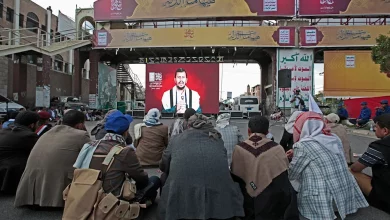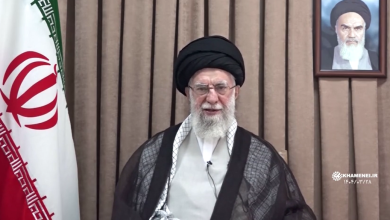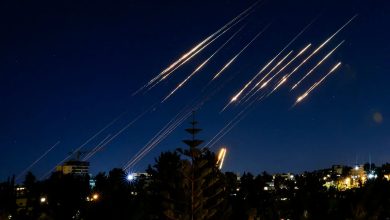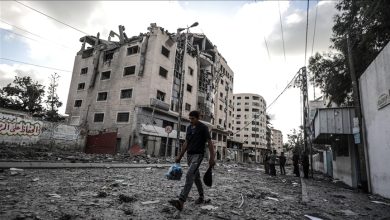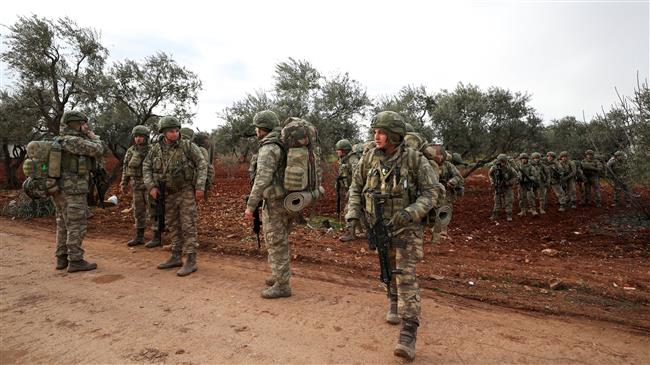
An unidentified aircraft has reportedly bombarded a base belonging to Turkish military forces in Syria’s northern province of Raqqah as the troops are conducting a military campaign in the area against US-sponsored Kurdish militants from the so-called People’s Protection Units (YPG).
Russia’s RT Arabic television news network, citing a report published by online Kurdish news service Hawar, said the unknown plane conducted an airstrike on the outskirts of Ayn Issa town on Thursday evening.
The report, however, did not provide any further information about the extent of damage caused.
The Tal Abyad region in northern Syria, where the town of Ayn Issa is located, has been the scene of bitter clashes between the Turkish forces and the YPG militants.
Turkey views the YPG as a terrorist organization tied to the homegrown Kurdistan Workers’ Party (PKK). The PKK has been seeking an autonomous Kurdish region in Turkey since 1984.
On October 9, 2019, Turkey launched a cross-border invasion of northeastern Syria in an attempt to push Kurdish militants affiliated with the YPG away from its borders.
Two weeks later, Russia and Turkey, signed a memorandum of understanding that forced the YPG militants to withdraw from the Turkish-controlled “safe zone” in northeastern Syria, after which Ankara and Moscow began joint patrols around the area.
Turkey has since wrested control of several areas in northern Syria in addition to other Kurdish-controlled areas.
Damascus views the Turkish military presence on Syrian soil as an attack on the Arab country’s sovereignty.
US military forces steal wheat crops in Syria’s Hasakah, move them to Iraq: SANA
Separately, a convoy of dozens of US military trucks has carried tons of grain from Syria’s northeastern province of Hasakah to the semi-autonomous Kurdistan region in northern Iraq.
Syria’s official news agency SANA, citing local sources, reported that 32 military vehicles loaded with wheat crops from silos of Tal Alou village in al-Ya’rubiyah region headed towards the Iraqi territories on Thursday after passing through al-Waleed border crossing.
Militants affiliated with the so-called Syrian Democratic Forces (SDF) escorted the convoy until it arrived at the border crossing.
This comes as US forces also continue to smuggle crude oil from Hasakah to Iraq.
The US military has stationed forces and equipment in northeastern Syria, with the Pentagon claiming that the troop deployment is aimed at preventing the oilfields in the area from falling into the hands of Daesh terrorists.
Damascus, however, says the deployment is meant to plunder the country’s resources.
Syrian Minister of Petroleum and Mineral Resources Bassam Tomeh told state-run and Arabic-language al-Ikhbariyah Syria television news network on March 18 that the US and its allied Takfiri terrorist groups are looting oil reserves in the war-stricken Arab country, revealing that Washington controls 90 percent of crude reserves in oil-rich northeastern Syria.
“Americans and their allies are targeting the Syrian oil wealth and its tankers just like pirates,” the Syrian oil minister said.
He noted that the cost of direct and indirect damage to the Syrian oil sector stands at more than $92 billion.
The US first confirmed its looting of Syrian oil during a Senate hearing exchange between South Carolina Republican Senator Lindsey Graham and former US secretary of state Mike Pompeo in late July last year.
On July 30 and during his testimony to the Senate Foreign Relations Committee, Pompeo confirmed for the first time that an American oil company would begin work in northeastern Syria, which is controlled by the SDF militants.
The Syrian government strongly condemned the agreement, saying that the deal was struck to plunder the country’s natural resources, including oil and gas, under the sponsorship and support of the administration of former US president Donald Trump.



